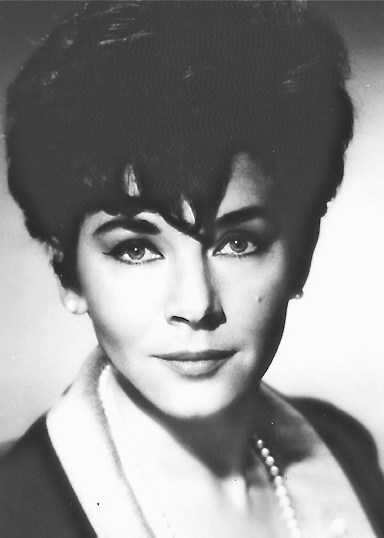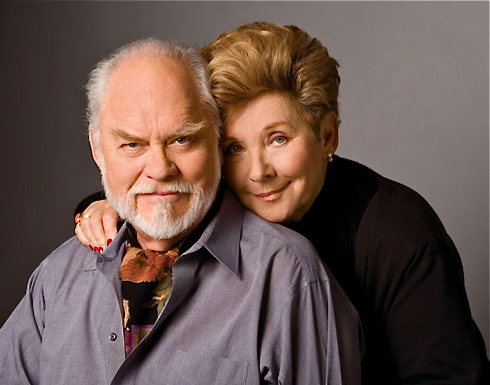
Farewell Queen Lear
By Sebastian Spreng, Visual Artist and Classical Music Writer In a year of significant losses for the world of music, the death of soprano Evelyn Lear at 86 closes a vital chapter in the interpretation of singing. And the term “vital” will always be associated with her irresistible temperament and pioneering spirit. Lear was a chameleonic kamikaze; a beautiful, genuine stage animal and a most generous teacher that constantly reminded to her students: “To survive in this business you must develop the thick skin of an elephant while keeping inside the sensibility of a butterfly.” Evelyn Lear in 1965
I had the privilege of interviewing her in her late sixties for the Argentinean magazine Clásica on the heels of the 1993 revival of Alban Berg’s Lulu at the Teatro Colón, where as the serial temptress she made a celebrated debut in 1965. At that time the composer’s widow, Helene Berg, had singled her out as the definitive incarnation of this killer role when she quickly learned it on short notice for the Vienna Festival 1962. “Oh… those Argentines were crazy about me…” she smiled, “and about my legs too! I will never forget them!” They didn’t forget her either. In spite that she was already long retired, the magazine chose to homage her giving her the cover, instead of the 1993’s Lulu.
“Queen Lear” was unpredictable, indomitable, tender, feisty, and disarmingly adorable. She embodied the tiger that was her sign in the Chinese zodiac and even in her seventies she retained that aura of incorrigible child with a hint of femme fatale. For the interview, she was waiting for me at the door of her Fort Lauderdale house. The red hair Prima Donna had prepared me tea and cakes. “I can’t help it,” she sighed, “It’s the Yiddishe Mame in me,” and out of respect for my last name she spoke to me in German, until I had to reveal that given my rudimentary, frankly pathetic, knowledge of that language, the interview would go nowhere. In a second, the irrepressible diva went from Pamina to Auntie Mame, reeling off a torrent of anecdotes that made me forget the tea and sweets on a Florida afternoon that lingered well into the night.
As in her unforgettable master classes (the Florida Grand Opera had that honor several times and they were a treat on the verge of Actor’s Studio sessions) what prevailed was her uncontainable passion, her deadly accurate intuition and an “indispensable curiosity and urgency always at the service of music” that she considered the sine qua non for a musician; needless to say, her own defining qualities.
In 1955, after Hunter College and Juilliard, that same contagious “curiosity and urgency” had made her go, along with her brand new husband (the great Wagnerian bass-baritone Thomas Stewart) to post-war Berlin to perfect their art. Both endowed with a Fulbright Fellowship. She immersed there absorbing the best of Europe into her essence of American pioneer. She worked with the legendary coloratura soprano Maria Ivogün (“A very, very strange woman…”) the Hungarian teacher of Elisabeth Schwarzkopf and, without meaning to, she emerged as a sort of “American Schwarzkopf” with an unmistakable touch of Elizabeth Taylor, in part thanks to her stunning eyes that led her to another Cleopatra, the one in Handel’s Giulio Cesare. That happy marriage between two worlds resulted in a legion of American singers who followed their model going to Germany, from Marilyn Horne and Helen Donath in the sixties to Thomas Hampson and Cheryl Studer in the eighties.
With charming nonchalance, she would shoot darts, sweet or spicy, and her targets could include Mozart (“The sexiest composer to sing, so much so, that it’s like pouring oil on your vocal chords.”), Carlos Kleiber (“I sang the Marschallin with him at La Scala, oh me!”), Fritz Wunderlich (“My favorite tenor. We both studied French horn; ideal to learn breathing support.”), Leonard Bernstein (“I played the horn for him in his orchestra at Tanglewood!”), Herbert von Karajan (“He asked me to sing Salome and Sieglinde! No way!”), Karl Böhm (“My mentor and such a difficult man!”) and Dietrich Fischer Dieskau, with whom she recorded the incomparable Wozzeck that catapulted her to stardom plus a Grammy. Her Sprechgesang still unsurpassed. No other singer has ever matched the striking artistry of Marie’s hypnotic reading of the Bible to her deprived kid. With unique accents and inimitable pauses, from a lyrical point of view far from the Mödl-Rysanek type, Lear would construct the actress-singer par excellence, were she performing Berg, Strauss or Mozart, her three favorites.
Berlin, Vienna, London, Munich, San Francisco were followed by a somewhat belated Metropolitan Opera debut in the world premiere of Marvin David Levy’s Mourning Becomes Electra. She triumphed as Lavinia, Eugene O’Neill’s vengeful daughter, directed by Zorba’s Michael Cacoyannis (“Superb… he was the best!”). Two years later, she played Octavian to Christa Ludwig’s Marschallin, and it was in that autumnal role of the Marschallin that she would say goodbye to the Met in 1985, joining the rank of exceptional singers who in the course of their careers played the three roles in Strauss’ Der Rosenkavalier (Sophie, Octavian and Marschallin).
Alas, the intrepid, versatile singer soon felt the inevitable vocal crisis caused by the rigors of contemporary music. She left behind those heroines and Tchaikovsky’s Tatiana, Countess Almaviva, the Composer, Donna Elvira, Bartok’s Judith, Emilia Marty, Desdemona, Tosca, Mimi, Alice Ford, Pamina, Fiordiligi, Irina Arkadina in The Seagull, Purcell’s Dido and Didon in Les Troyens. Instead, she opened the door to Lehar, Offenbach, Kurt Weill, Stephen Sondheim (as Madame Armfeldt) and – once again – Lulu, this time not as her signature role but as a poignant Countess Geschwitz, Lulu’s lesbian lover. In 1992, a hilarious cameo appearance as the tippling voice teacher in Bernstein’s On the Town, along Frederica von Stade and Sam Ramey under MTT, proved her last televised performance.
In recital, she also ranged far and wide, from Debussy, Schubert and Hugo Wolf to Schönberg, Barber, Berlioz, Villalobos, Stravinsky and the Russian songs of Rachmaninoff and Glière, legacy of her mother, the Ukrainian soprano Nina Quartin.
With her husband – the referential Wotan, Holländer and Hans Sachs of his generation – she made recordings of Wagner, Strauss, Krenek, Mahler’s Des Knaben Wunderhorn (years before Schwarzkopf and Fischer-Dieskau), Brahms’ German Requiem, Lieder, Lullabies, and a charming recital of light music that included Lehar, Romberg, Cole Porter, Gershwin, Kern, and a truly unique The “Boy” from Ipanema plus an unexpected The Lady is a Tramp “á la Shirley Bassey”. When they retired, they remained active giving Master classes; they also founded the Evelyn Lear and Thomas Stewart Emerging Singers Program in Washington, of which she was extremely proud.
The towering Tom was her balance and pillar of strength (“We were known as the musical couple who never say no, always ready and, yes, let’s say the Joanne Woodward and Paul Newman of opera!”). She was right and when, in 2006, after a half-century together, he collapsed dead on the golf course where they played for years, it marked for a heartbroken Lear the beginning of the end, her personal Liebestod.
Though this pair of American colossuses deserved a tribute that never came, the Kennedy Center Honors, unequivocal traces of their art remain in the style and vocal color of their heirs, in her case singers like Lorraine Hunt-Lieberson, Dawn Upshaw or Renée Fleming.
A week after the death of Franz Crass – “her Sarastro” – and very few after that of Dietrich Fischer-Dieskau – “her Wozzeck”- Evelyn Lear has gone to join Tom, more than ever her eternal soul mate. She will no longer be alone.

Thomas Stewart and Evelyn Lear in 2006, photo by Dario Acosta
Evelyn Lear, née Shulman (Brooklyn, January 8, 1926 – Sandy Spring, Maryland, July 1, 2012). Essential Evelyn Lear on CD
- Berg, Wozzeck & Lulu, Karl Böhm. DG
- Mozart, Die Zauberflote, Karl Böhm, DG
- Evelyn Lear-Thomas Stewart, a Musical Tribute. DG
- Evelyn Lear, an 80th Birthday Tribute. Vai Audio
Recent Content
-
Artsarticle ·
-
Artsarticle ·
-
Artsarticle ·
